Mihaela Vela
Improving CAT Tools in the Translation Workflow: New Approaches and Evaluation
Aug 16, 2019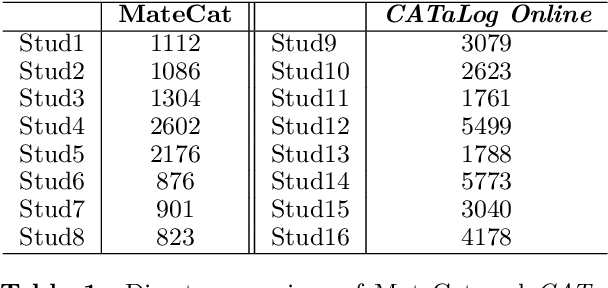
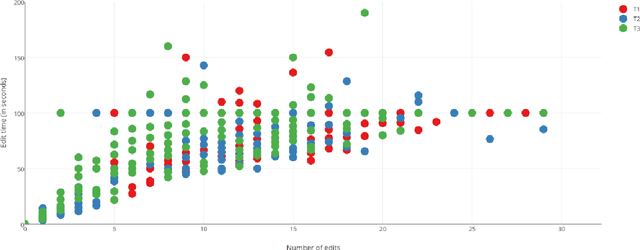


Abstract:This paper describes strategies to improve an existing web-based computer-aided translation (CAT) tool entitled CATaLog Online. CATaLog Online provides a post-editing environment with simple yet helpful project management tools. It offers translation suggestions from translation memories (TM), machine translation (MT), and automatic post-editing (APE) and records detailed logs of post-editing activities. To test the new approaches proposed in this paper, we carried out a user study on an English--German translation task using CATaLog Online. User feedback revealed that the users preferred using CATaLog Online over existing CAT tools in some respects, especially by selecting the output of the MT system and taking advantage of the color scheme for TM suggestions.
Exploring the Use of Text Classification in the Legal Domain
Oct 25, 2017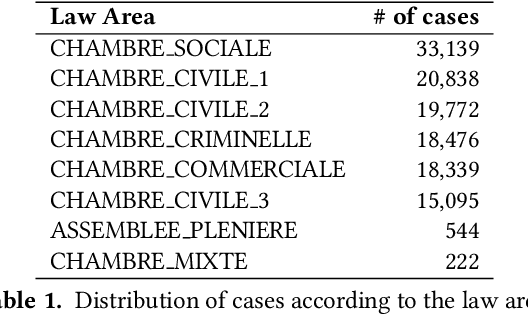
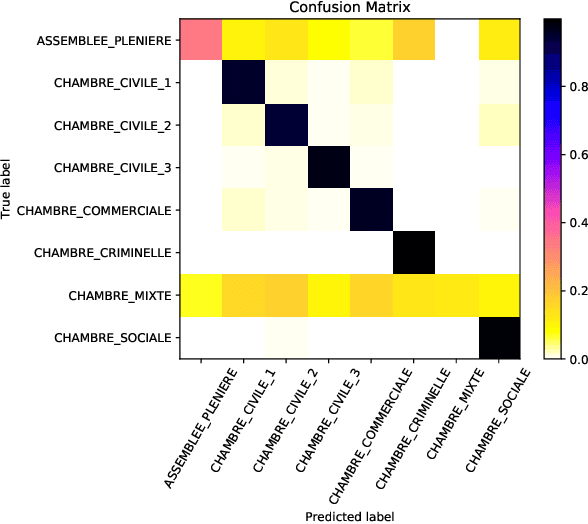

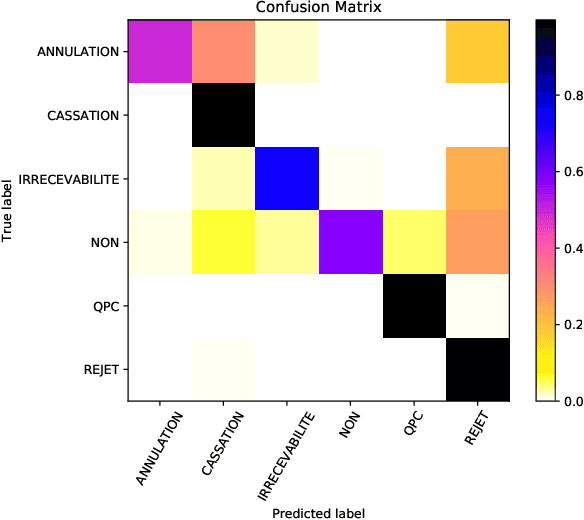
Abstract:In this paper, we investigate the application of text classification methods to support law professionals. We present several experiments applying machine learning techniques to predict with high accuracy the ruling of the French Supreme Court and the law area to which a case belongs to. We also investigate the influence of the time period in which a ruling was made on the form of the case description and the extent to which we need to mask information in a full case ruling to automatically obtain training and test data that resembles case descriptions. We developed a mean probability ensemble system combining the output of multiple SVM classifiers. We report results of 98% average F1 score in predicting a case ruling, 96% F1 score for predicting the law area of a case, and 87.07% F1 score on estimating the date of a ruling.
Predicting the Law Area and Decisions of French Supreme Court Cases
Aug 04, 2017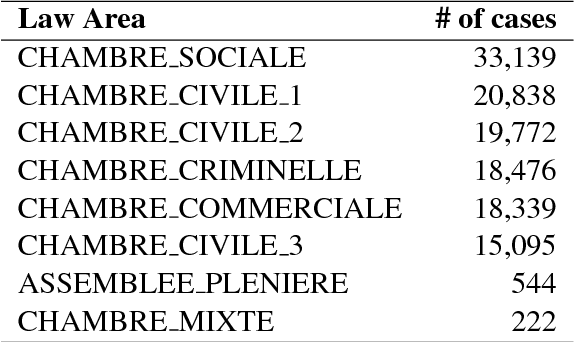
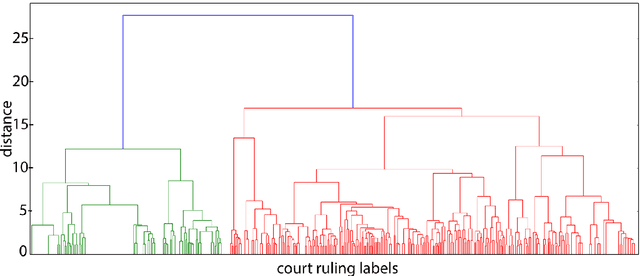

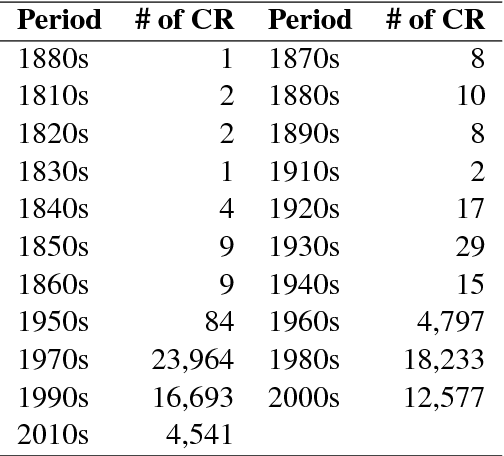
Abstract:In this paper, we investigate the application of text classification methods to predict the law area and the decision of cases judged by the French Supreme Court. We also investigate the influence of the time period in which a ruling was made over the textual form of the case description and the extent to which it is necessary to mask the judge's motivation for a ruling to emulate a real-world test scenario. We report results of 96% f1 score in predicting a case ruling, 90% f1 score in predicting the law area of a case, and 75.9% f1 score in estimating the time span when a ruling has been issued using a linear Support Vector Machine (SVM) classifier trained on lexical features.
 Add to Chrome
Add to Chrome Add to Firefox
Add to Firefox Add to Edge
Add to Edge